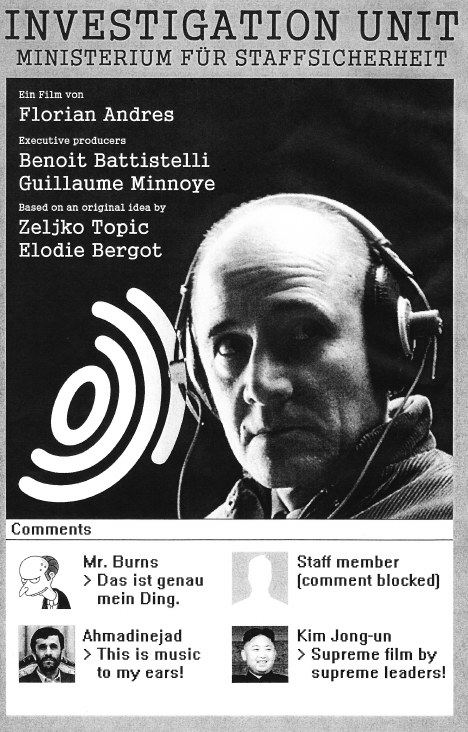


THE MORE we learn about the EPO, the more appalling it looks. They have plenty to hide up there, hence they're desperate to crush whistle-blowing and journalism.
In 2014 Transparency International published a so-called “integrity study” of several EU institutions. The study analysed whether these institutions had the regulations and mechanisms in place to detect and prevent corruption. SUEPO suggested at the time that the EPO invite Transparency International to do the same for the EPO. “Transparency” seemed supportive. Not surprisingly, the EPOrg (Mr Kongstad) was quick to dismiss the idea. But obviously: “Transparency” does not really need a company or organization to welcome them in order to do a study. If that were the case, few if any deficiencies would ever be exposed. So we were a little disappointed that “Transparency” simply vanished from the scene without a trace for unclear reasons.
The German magazine “Der Spiegel” reported on various Union bashing scandals involving Control Risks, the firm that is now assisting the Investigative Unit interrogating EPO Union officials and staff representatives (see below).
Lufthansa and Deutsche Bahn were amongst the clients of Control Risks. Given that background, it is surprising that Control Risks is a corporate member of Transparency International Germany, something that could easily be interpreted as a seal of approval. But there are more surprises waiting: Lufthansa and Deutsche Bahn are also on the list of corporate members of “Transparency”. These corporate members pay for the honour. We are not the first to wonder whether such contributions from corporate friends could affect Transparency’s independence. The European Patent Office is fortunately not (yet?) on the list. Nevertheless: the very concept of “corporate friends” would not seem in line with Transparency’s message and mission.
Back to Control Risks: the Control Risks employee who seems to be the main consultant for the EPO (and the main interrogator) is Matthew Kinch of Control Risks Berlin. He is the co-author of an article about "Krisenmanagement im Falle einer externen Korruptions- ermittlung" (sic). Control Risks claims strict adherence to national law and to their code of ethics. We have some doubts about that. In the pending procedures Mr Kinch and other Control Risk employees cannot claim they adhere to the EPO regulations, as they are no EPO employee, but external contractor / consultant. As with all other contractors working for or at the EPO, national law remains applicable to them:
The employees of Control Risk remain bound by national law in their interactions with individual EPO staff members. This means that they should respect the broader rights given to EPO staff members by national law, e.g. right to remain silent, right to be accompanied by legal assistance of their choice, and right to know who is the accuser1.
It further means that if an EPO staff member suffers damage, e.g. undue dismissal, on the basis of material collected by Control Risks in a procedure that would be considered flawed under national German law, Control Risks can be held liable for that damage. We are currently looking into this matter. _________ 1 This right is even recognised by ILOAT, see Judgment 2014: "It is contrary to due process to require an accused staff member to answer unsubstantiated allegations made by unknown persons. The staff member is entitled to confront his or her accusers. In the present case, if the Organization was not willing to disclose the identity of the complainant's accusers, and had no other independent evidence to rely on, the charges should not have been brought." It is, however, happily ignored by the Investigative Unit.